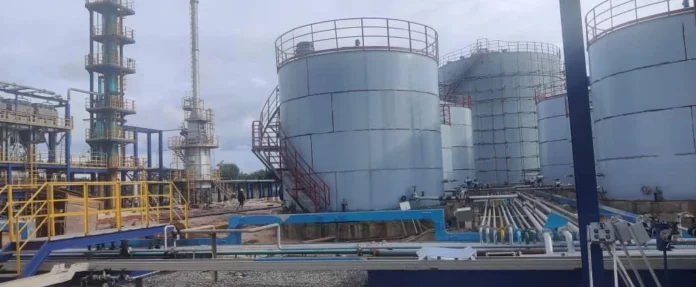The Lagos State Government has announced plans to invite bids for the construction of up to 4,000 megawatts (MW) of gas-fired power plants in a bid to tackle the ongoing electricity shortage that has plagued businesses and households across the country.
According to the World Bank, nearly 40% of Nigeria’s population, or over 80 million people, live without power, which has significantly hindered economic growth.
Lagos, home to more than 20 million people, is among the cities most affected by the energy crisis. The state government has said that it needs 6,000 MW of electricity to meet the growing demands of its rapidly expanding population, but the national grid currently provides only about 2,000 MW.
This gap has led to daily power outages, with many businesses and households relying on costly fuel-powered generators. The Lagos state government is now stepping up efforts to address the issue by launching its ambitious Clean Lagos Electricity Market plan, which includes the construction of four new gas-fired power plants.
“The minimum expected generating capacity for each of the four hubs will be 500 MW, which one or more generating power firms shall generate,” the Lagos Ministry of Energy and Mineral Resources said in a public notice.
These plants will be key to reducing the strain on the national grid and helping Lagos meet its energy needs. The state government has allocated four hubs for the construction of these plants, with each hub expected to generate a minimum of 500 MW.
Lagos is inviting bids from power firms to invest and build the plants, with companies expected to arrange their own financing. These firms will also enter into power purchase agreements with the state government, which will guarantee the sale of electricity generated by the new plants.
The push for these new plants comes after President Bola Ahmed Tinubu’s decision last year to allow state governments to generate and distribute their own electricity. This change in policy is a significant departure from previous laws, which gave the federal government exclusive control over the generation and distribution of power. The new policy is aimed at encouraging more investment in the country’s energy sector.
However, the issue of sub-economic electricity tariffs has long been a barrier to investment by independent power producers. For years, electricity tariffs in Nigeria have been kept artificially low, discouraging companies from investing in the energy sector. The government has started to address this by gradually removing electricity subsidies, which could help attract more investment in power generation.
Nigeria is one of the largest economies in Africa, but its electricity infrastructure has been severely underdeveloped. While the country has the capacity to generate up to 13,000 MW of electricity, its outdated grid infrastructure can only distribute around a third of that capacity. This has forced many businesses and households to rely on expensive diesel or petrol generators to meet their energy needs, further exacerbating the country’s power problems.
The impact of these power shortages is felt across all sectors of the economy. Small businesses, especially those in Lagos, which is the country’s commercial and financial hub, are hit hardest by the blackouts. Without reliable electricity, productivity is slowed, and costs rise, making it harder for companies to remain competitive.
“Electricity is one of the biggest challenges we face in Nigeria. It’s hard to run a business when you can’t depend on power,” said a Lagos-based business owner. “We have to rely on generators, and that’s very costly. I hope this new plan will bring the change we need.”
The situation has become so dire that the country’s power grid has collapsed multiple times this year. On Monday alone, Nigeria suffered its ninth grid collapse in 2024, further underlining the urgent need for additional power generation capacity.
The government is hoping that these new power plants will help stabilize the country’s energy supply and reduce the frequency of grid collapses. Lagos’ move to develop its own electricity plants is seen as a crucial step in addressing the power deficit and ensuring that businesses and households have reliable access to electricity.
“We are doing everything we can to address the electricity shortage in Lagos,” said Babajide Sanwo-Olu, the Governor of Lagos State. “We are committed to ensuring that Lagos has the power it needs to continue growing and driving the Nigerian economy forward.”
While the bid for new power plants has been welcomed by many, experts warn that it is just one step toward solving the country’s broader energy crisis. Nigeria will need to invest heavily in modernizing its energy infrastructure and addressing regulatory challenges if it is to meet the growing energy needs of its population.

